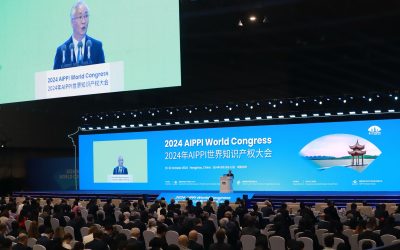In recent years, Artificial Intelligence Generated Content (hereinafter referred to as AIGC), represented by ChatGPT, has gained great development and attention worldwide. On the one hand, due to its powerful knowledge and content generation capabilities, the industry sees its wide range of application scenarios. On the other hand, due to the opacity and non-interpretability of AIGC, it faces huge challenges in the four aspects of intellectual property, security, ethics, and environment. In June this year, the European Parliament passed the draft Artificial Intelligence Bill with a high vote, which means that the European Parliament, EU member states, and the European Commission will start “tripartite negotiations” to determine the final terms of the bill. Meanwhile, the US is also actively exploring AI regulation-related issues.
But China has gotten a head start. Seven Chinese ministries and commissions involved in AI regulation have jointly announced the Interim Measures for the Administration of Generative Artificial Intelligence Services (hereinafter referred to as the Interim Measures), which will come into effect on August 15, 2023. Compared to the EU’s Artificial Intelligence Bill, the Interim Measures reflect a different focus and are relatively simple, divided into five chapters totaling 24 articles, but it is indeed the world’s first comprehensive legislative document regulating generative AI. The Interim Measures make specific provisions on generative AI in terms of technology development and governance, service standardization, supervision and inspection, and legal responsibility, setting the tone for the future development of generative AI in China. It is worth mentioning that, compared to the exposure draft released three months ago, the thinking of this regulation has undergone a major shift, from the need to strengthen the supervision of generative AI and prevent risks to the need to encourage the development of AI technology and be inclusive and prudent with regard to AI services.
Relevant concepts are defined in the Interim Measures. The term “generative artificial intelligence technology” refers to models and related technologies that have the ability to generate content such as text, pictures, audio, video, etc. The term “generative artificial intelligence service provider” refers to organizations and individuals that utilize generative artificial intelligence technology to provide generative artificial intelligence services (including by providing programmable interfaces and other means of providing generative artificial intelligence services).
With regard to the scope of application of the Interim Measures, the following three points have been clarified: the use of generative artificial intelligence technology to provide the public in the People’s Republic of China with services for generating content such as text, pictures, audio, video, etc. (hereinafter referred to as generative artificial intelligence services) is subject to these Measures. Where the State has otherwise provided for the use of generative AI services to engage in activities such as news publishing, film and television production, and literary and artistic creation, such provisions shall prevail. The provisions of these Measures shall not apply to industrial organizations, enterprises, educational and scientific research institutions, public cultural institutions, relevant professional institutions, etc., which develop and apply generative artificial intelligence technology and do not provide generative artificial intelligence services to the public within their territories.
In addition, the Interim Measures also stipulate the norms of generative AI services, making it clear that generative AI service providers shall take effective measures to prevent over-reliance or addiction of underage users to generative AI services, mark generative content such as pictures and videos in accordance with the “Provisions on the Administration of Depth Synthesis of Internet Information Services”, and take timely measures to dispose of any illegal content found, and so on. In addition, the Interim Measures also provide for a system of security assessment, algorithm filing, complaint reporting, etc., and further clarify the relevant legal responsibilities.
With regard to the Interim Measures, the following three points remain worthy of further attention:
- It has been clarified that domestic entities providing generative artificial intelligence services to overseas entities do not need to apply these Measures. However, in the case of generative AI services within China in the course of providing services outside China, even if the Measures do not need to be applied, attention still needs to be paid to whether compliance issues, such as the exit of data, will arise.
- The Interim Measures do not provide detailed explanations on how to recognize the legitimacy of data sources, and how to interpret the principle of not infringing on the intellectual property rights enjoyed by others in accordance with the law. These can only be explored in the subsequent judicial and law enforcement practice, and the direction can be clarified through relevant jurisprudence.
- With regard to the regulatory principles of AI, the Interim Measures coincide with the classification and grading regulatory measures of the EU’s Artificial Intelligence Act, and it is believed that this initiative will greatly reduce the industry’s concerns about the development being hindered by overly stringent regulation. However, the current classification and grading regulation is limited to a statement of principles, and the specific grading standards have not yet been clarified, so we need to wait for further clarification from various regulatory authorities.
Overall, China’s departmental legislators both recognize the importance of compliance for generative AI and fully acknowledge that existing legal rules make it difficult to predict the shape, productivity, and corresponding risks of future AIGC services. The Interim Measures provide a broader policy space for industry R&D to avoid stifling emerging technologies and significant innovative research. China has demonstrated a proactive attitude in promoting the development of generative AI, and the Draft Artificial Intelligence Law has been included in the Chinese government’s 2023 legislative work plan for consideration by the National People’s Congress (NPC). Looking ahead, China will strengthen AI technology research and development, encourage cutting-edge AI research and original innovation, build an opensource and open innovation ecosystem, and accelerate the deployment of AI in scientific research, medical services, cultural creativity, ecological governance and other fields. This is believed to be a major inspiration for the rest of the world and will help eventually form a globally unified governance framework and values in the field of AI.

Written by Gang HU
Trademark Attorney, Patent Attorney, General Director of Litigation Division, CCPIT Patent & Trademark Law Office
You may also like…
Welcome to Hangzhou! The AIPPI World Congress 2024
AIPPI World Congress 2024 opened its doors in Hangzhou, China, on Saturday, 19 October. All attending were warmly...
Crystalizing plant variety infringement protection in India
On September 20, 2024, the Delhi High Court ruled in Pioneer Overseas Corporation v. M/s Evercrop Agro Science &...
German criminal court finds three defendants guilty of fraud for sending misleading invoices to EUIPO customers
In September 2024, the Munich Court (Germany) found three defendants guilty of commercial gang fraud for sending...
Contact us to write for out Newsletter














